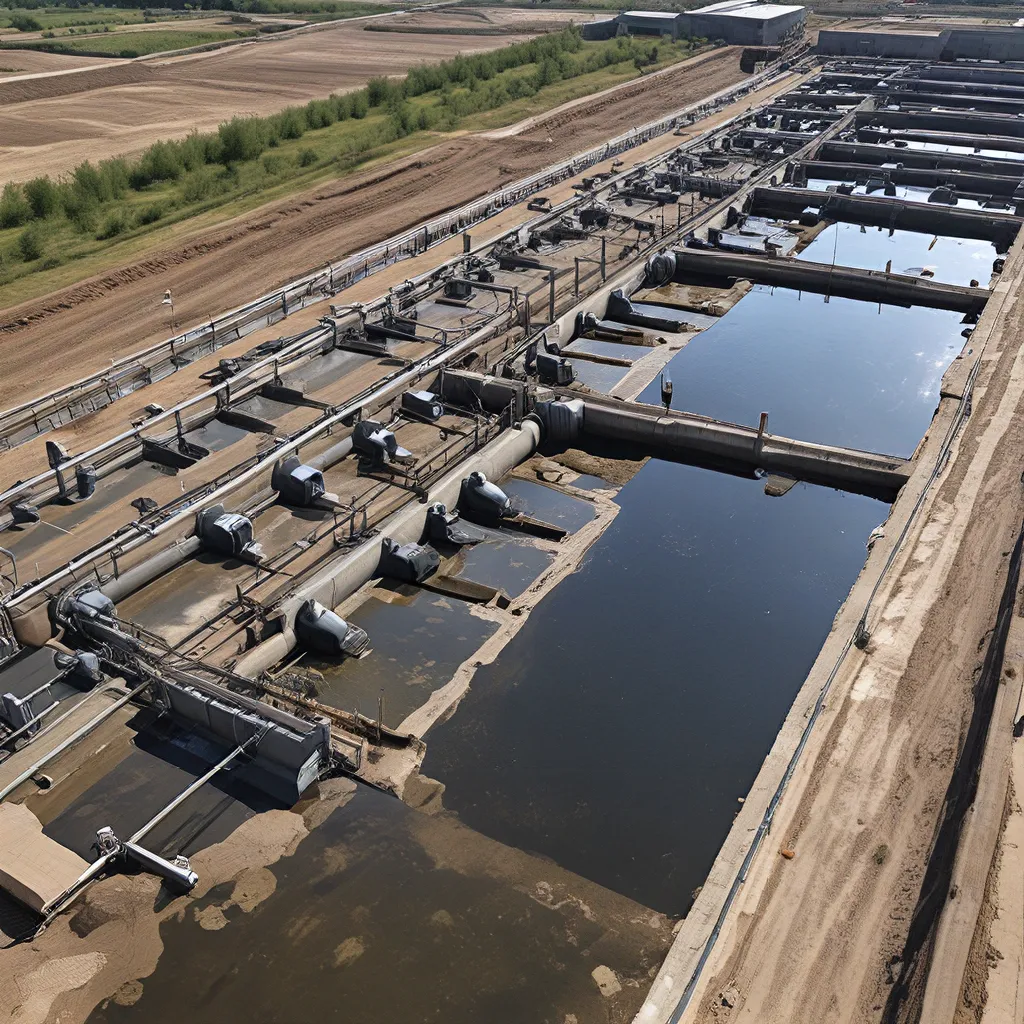
As a sustainability enthusiast, I’ve always been fascinated by the intricate world of wastewater treatment and the innovative ways we can maximize the value of our resources. Today, I’ll take you on a journey to explore the exciting landscape of sludge management and the emerging opportunities for valorization – the process of extracting valuable products or energy from waste.
The Challenges of Wastewater Treatment
Wastewater treatment is a critical component of our modern infrastructure, responsible for ensuring the safe and sustainable management of our water resources. However, the challenges we face in this domain are multifaceted and ever-evolving. From the relentless strain on water supplies due to population growth and urbanization, to the complex interplay of socioeconomic factors and policy inefficiencies, the task of ensuring clean and accessible water for all is no easy feat.
As I delved into the research, I was struck by the sheer scale of the problem. According to a recent study, the city of Bangalore, India, is grappling with severe water scarcity due to a combination of unsustainable management practices, socioeconomic disparities, and policy shortcomings. The paper paints a sobering picture, highlighting the urgent need for a multifaceted approach to address this challenge.
But amidst the daunting challenges, I also found glimmers of hope – innovative solutions and emerging technologies that could revolutionize the way we manage our wastewater and extract value from the often-overlooked byproducts.
The Rise of Sludge Valorization
At the heart of the wastewater treatment process lies the sludge – a semi-solid residue that is generated during the treatment of wastewater. Traditionally, sludge has been seen as a waste product, often requiring costly and environmentally-taxing disposal methods. However, a paradigm shift is underway, as the concept of sludge valorization gains traction.
Sludge valorization is the process of transforming this previously underutilized resource into valuable products or energy, thereby reducing the environmental impact and unlocking new revenue streams. The possibilities are truly exciting, as researchers and industry leaders explore a wide range of innovative approaches.
One study delves into the potential of converting sludge into biofuels, highlighting the opportunity to leverage the inherent energy content of the organic matter within the sludge. By employing cutting-edge technologies like anaerobic digestion and pyrolysis, the sludge can be transformed into biogas, biohydrogen, and even biodiesel, providing a sustainable alternative to traditional fossil fuels.
But the possibilities don’t end there. Researchers are also exploring the extraction of valuable nutrients and minerals from sludge, which can then be used as fertilizers or soil amendments. This not only reduces waste but also contributes to the circular economy by closing the loop on nutrient cycling.
Embracing the Circular Economy
The concept of the circular economy is gaining traction as a holistic approach to resource management, and the wastewater treatment industry is poised to play a pivotal role. By shifting from a linear “take-make-waste” model to a circular system, we can unlock new opportunities to extract maximum value from our waste streams.
One exciting example of this can be found in the policy recommendations proposed for the city of Bangalore. The report suggests the implementation of decentralized wastewater treatment systems and the integration of nature-based solutions, such as constructed wetlands, to not only address the water scarcity challenge but also facilitate the recovery and reuse of valuable resources.
By embracing the circular economy principles, we can transform our wastewater treatment facilities into true resource recovery hubs, where sludge, nutrients, and even water itself are recovered and repurposed, minimizing waste and environmental impact.
The Future of Wastewater Treatment
As I delve deeper into this fascinating topic, I’m struck by the sheer potential of the innovations on the horizon. From the development of advanced oxidation processes to remove persistent contaminants, to the exploration of membrane technologies for enhanced water reuse, the future of wastewater treatment is brimming with promise.
But perhaps the most exciting aspect is the growing recognition that wastewater is not just a problem to be solved, but an opportunity to be seized. By shifting our mindset and embracing the principles of sludge valorization and the circular economy, we can unlock new revenue streams, reduce our environmental footprint, and contribute to a more sustainable future.
It’s a future where wastewater treatment plants are not just facilities, but resource recovery hubs – dynamic centers of innovation, where the by-products of our modern life are transformed into valuable commodities. A future where we can tackle the pressing challenges of water scarcity and resource depletion, while creating a more resilient and prosperous world for generations to come.
As I reflect on this journey, I’m filled with a sense of optimism and determination. The path ahead may not be easy, but with the right mix of technological advancements, policy reforms, and collaborative efforts, I believe we can rewrite the narrative of wastewater treatment and pave the way for a more sustainable and resource-efficient future.
So, let’s dive in, roll up our sleeves, and get to work. The future of our water resources and the health of our planet depend on it. Who’s ready to join me on this exciting adventure?